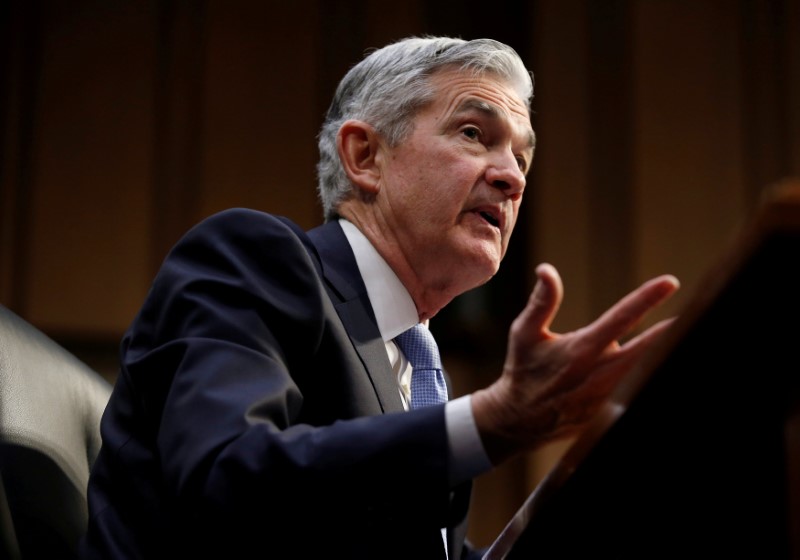By Ann Saphir, Lindsay Dunsmuir and Jason Lange
SAN FRANCISCO/WASHINGTON (Reuters) - Jerome Powell, President Donald Trump's pick to lead the U.S. central bank starting next month, backed the Federal Reserve's third bond-buying program only reluctantly, transcripts released on Friday show.
"I’m supporting (the decision) with a certain lack of enthusiasm, and I am somewhat uncomfortable with the road that we are on," Powell said at the Fed's September 2012 meeting, when policymakers agreed to begin buying $40 billion in mortgage-backed securities a month to help keep interest rates low and boost hiring and investment.
Powell, 64, who joined the Fed in mid-2012, said little on the quantitative easing program publicly at the time, and the transcripts offer a look at the contrast between his lukewarm embrace of the stimulus and the full-throated support from Janet Yellen, who at the time was No. 2 on the Fed Board. Yellen is currently the Fed's chair, a position she took in 2014.
The Fed releases meeting transcripts with a five-year delay, and published those from 2012 on Friday.
“Absent further policy action, I see little chance that unemployment will decline in the foreseeable future," Yellen said at the same September 2012 meeting, according to the transcript. "We should not delay action any further.”
Powell's views since appear to have moved closer to those of Yellen, who fought for aggressive use of Fed stimulus to help fuel job creation.
Even over his first six months on the job in 2012, his views of the economic outlook appear to have evolved. At first he was decidedly more optimistic about the economy than some of his colleagues as they debated expanding the Fed's stimulus programs to combat an unemployment rate stuck above 8 percent.
“I am simply not persuaded that the slowdown will carry into 2013,” Powell said at the Fed’s June 2012 meeting, citing generally upbeat economic assessments from his "contacts in the industrial patch."
At the same meeting, Yellen characterized economic data since the prior meeting as "almost uniformly discouraging" and Ben Bernanke, the Fed's chairman at the time, said he agreed with Governor Daniel Tarullo that the economy was "stuck in the mud."
EVOLVING VIEW
By December, Powell said he was no longer convinced there would be much improvement in 2013, though he said he hoped there would be some in the second half.
Throughout this initial period at the Fed, Powell leaned heavily on his own conversations with investors and businessmen, an approach that differed from Yellen's own highly technical analysis.
Powell joined the Fed board in May 2012 after a career in investment banking, including as a partner at private equity firm The Carlyle Group (NASDAQ:CG).
In the transcripts, Powell said at the September meeting that private equity investors appeared eager to snap up U.S. companies, which suggested the economy was still on good long-term footing.
“They're seeing something. They really are,” he said.
Yellen backed her argument for aggressive action in September with a technical argument that the weakness in the labor market could become ingrained in the economy, citing a relatively arcane economics concept known as "hysteresis."

The transcripts also show that while Powell allowed himself to be persuaded to support the Fed's bond-buying program in the end, he continued to be dogged by what he called in December his "misgivings" about creating what he worried would be an overly large Fed balance sheet.